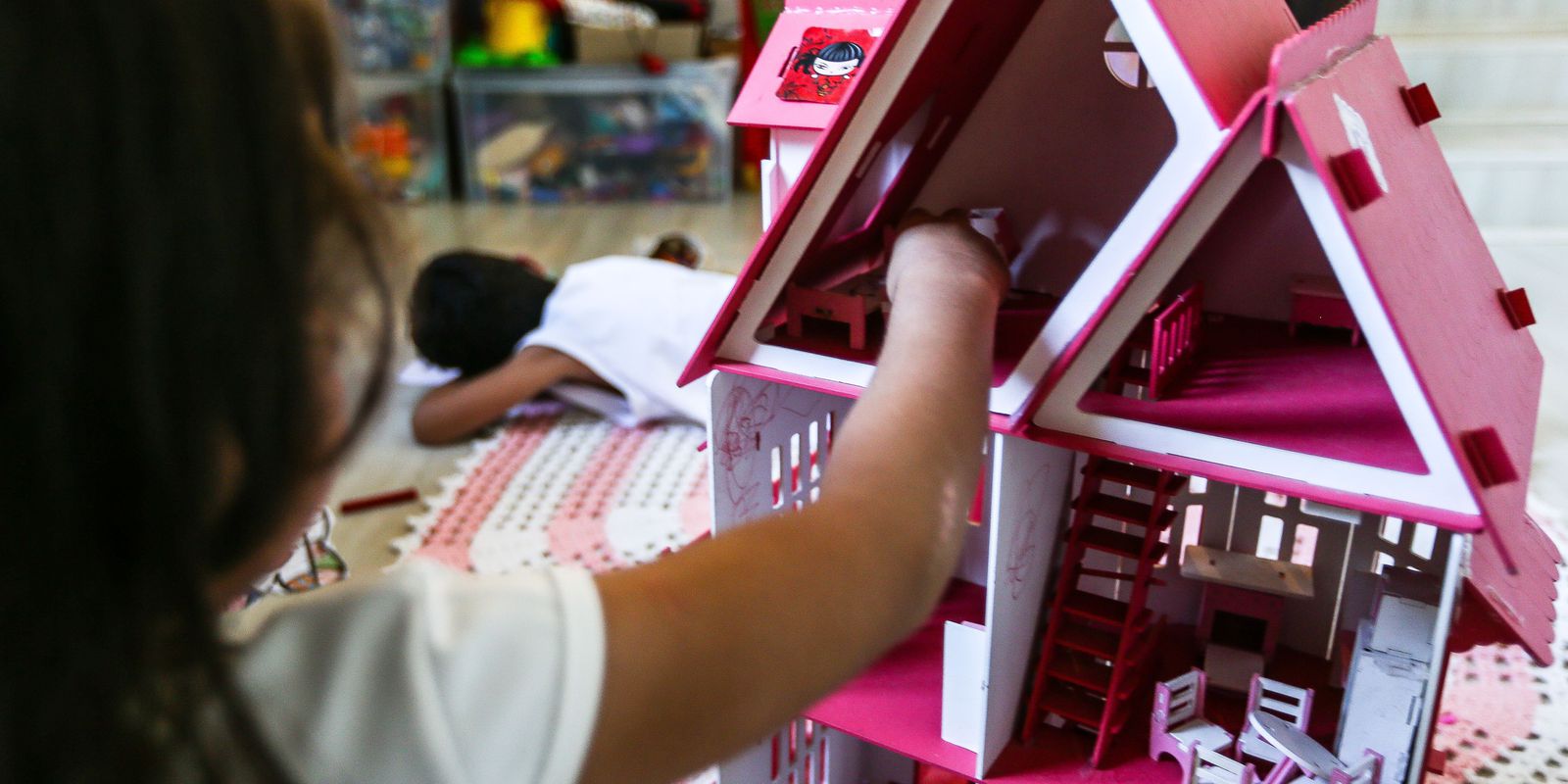July has arrived and so is the school vacation period for children and teenagers. Awaited by the little ones (and not so little ones) for the numerous possibilities of leisure, games and rest, the holidays change routines which increases the risks of small accidents, falls and trauma inside and outside the house. In the domestic environment, caregivers need to take care of situations such as burns, poisoning, drowning, falls, cuts, suffocation and electric shock.
Both inside and outside the house, it is necessary to be aware of the movement of children. The most common accidents in emergencies are minor injuries and bruises, according to pediatric orthopedist Wilson Lino Junior, coordinator of Pediatric Orthopedics at the Children’s Hospital Sabará in São Paulo.
“Children are always on the move and looking for adventures and interaction with their peers. We must think about some factors that can explain the greater amount of trauma and accidents: children’s coordination is constantly developing, normal gait only resembles that of an adult at 6 years of age, body changes occur until the final stage of growth , close to 16 years of age”.
According to the doctor, the child grows a lot over a short time and the relationship with the world around him changes constantly.
“Imagine that a table has the standard height of 80 cm, a child at 2 years old can go under the table without having to lower it and, in less than a year, he needs to recalibrate its parameters, because if he doesn’t lower he will hit his head, one of the most common traumas seen in emergencies.”
After the accident, the orientation is to observe the child. “Fainting and vomiting are warning signs with head trauma. Deformities, severe pain in the limbs are signs of fracture. Cutting wounds with profuse bleeding should also be taken to the emergency room”, lists the doctor.
“In the case of trauma to the limbs, temporary immobilization is recommended; in bleeding wounds, wrap it with a clean towel or cloth and do not use tourniquets or tourniquets. Never put substances such as coffee, oil, toothpaste and other products of beliefs that can contaminate wounds, cause serious infections and make treatment difficult”, warns the orthopedist.
According to Lino Junior, the most frequent accidents usually occur indoors, where parents, in general, are calmer because they consider a safe environment.
gagging
In addition to accidents, there are also other unexpected situations, including choking, which usually occurs with children under 5 years old, according to otorhinolaryngologist Saramira Bohadana, responsible for the Aerodigestive area at the Sabará Children’s Hospital in São Paulo.
“Children in the oral phase usually put everything in their mouths. If the object is small, the child is at risk of aspirating or swallowing. The objects that pose the most risk to the child are batteries. So parents should be very careful not to have toys with small batteries at home, because batteries that are not alkaline, in contact with both the nasal mucosa and the digestive mucosa, corrode the mucosa and cause tissue perforation and destruction, and that is extremely serious, the child must be attended as soon as possible”, warns the doctor.
She reinforces that one should not wait to see if the object comes out in the stool. “The child’s family should always look for the nearest emergency room when they realize that the child has choked or if he has had an accident with the foreign body and never wait to see what will happen or if it will be eliminated in the feces”.
popcorn and peanuts
It’s difficult to find a child who doesn’t like popcorn, but younger children should stay away from food, as well as peanuts, due to the high risk of choking, added the doctor.
“The guideline is to avoid exposure to peanuts and popcorn for children aged 2 to 4 years, where the risk of choking is greater. Also take out small toys like legos and battery toy, no way. So it’s taking all kinds of objects that the child can put in their mouths and eventually aspirate”.
Luis’ mother, banker Janaína Vieira de Oliveira Grave e Souza, had a scare when the boy, aged 2, choked on peanuts.
“He was with my older nephews and they were eating peanuts, Luís took a small portion of peanuts and was playing with them and ended up choking. At the time, he lost his breath a little and we did that choking maneuver, that father’s despair, right? He turns upside down, squeezes his belly, sticks his finger down his throat, in short, he vomited, the air came back and everything was fine”, he recalls.
“But at night we ended up taking it to the emergency room because I was scared, I looked it up on the internet and saw several reports of children who aspirated peanuts or similar things. In the emergency room they took an X-ray and, apparently, everything was normal”, said Janaína.
During the night, however, the picture changed. “He was breathing a little harder. I spoke to his pediatrician and she said it was serious and that I should go to a pediatric hospital. The doctor who attended looked at the same X-ray and said that the peanut was in the lung. He was hospitalized in the ICU for four days and had to undergo a bronchoscopy”, says the mother.
The procedure was quick, but the boy needed to be anesthetized. “The super-experienced doctor who attended to him explained how the procedure would be as it could have sequelae, it could take a while to locate the peanut, but in his case everything was fine. But, as a mother, you get desperate at the time and wonder how you left it when you care so much.”
Now 5 years old, Luís still doesn’t eat peanuts. And he’s only released for popcorn when there’s an adult around. “Every time he eats something that I think might choke or pose a risk, he’s under supervision. For example, chocolate balls, popcorn that he loves, he only eats under supervision and we sometimes take the cone off, watching him eat”.
dangerous objects
According to the doctor, the main accidents with choking occur with stones from clothes, jewelry, rubber, plastic, pieces of toys and food, especially popcorn. Children can choke both swallowing and aspirating these objects into the airway.
“Cases of aspiration of objects into the airway are rarer, but swallowing is the most frequent. In our statistics, 36% of the cases were of the digestive tract. While 31% were objects placed in the oral cavity and 5% of the cases were of oropharine and 27% of the cases are objects placed in the ear”, details the specialist.
Prevention
To reduce the chance of accidents at home, the orthopedist at Hospital Sabará lists some important precautions:
– Place protectors that prevent the sudden closing of doors – a situation that can cause serious accidents, such as amputation of children’s fingertips.
– Televisions and heavier objects must be fixed to avoid falling.
– Leave toys within reach of the child. Medicines and cleaning products should always be out of the reach of little ones.
– Explain and show the hazards of a stove or oven while cooking.
“The most important thing is to educate the child to know how to handle objects such as cups, cutlery, carry them in a way that they won’t get hurt when dropped, use both hands, not run while carrying cups or plates, etc. In short, educating is always better than preventing the child from doing everyday things. The child likes to collaborate and participate in activities, start with simple activities and plastic objects and gradually increase the complexity, he will learn and perform with increasing dexterity”, advises the pediatric orthopedist.
Emergency
Number 193, from the Fire Department, receives calls for domestic accidents involving children every day. During the school holidays, however, this rate increases significantly, explains Lieutenant Caeth of the 1st Group of Firefighters in the city of São Paulo.
“The main domestic accidents occur involving swimming pools, cooking pots and electricity. They occur due to negligence on the part of the person responsible, so attention must be redoubled in terms of protecting the environment for the child”, he warns.
To avoid accidents, Lieutenant Caeth gives the following guidelines:
– Swimming pools: children must always be in the company of an adult and use safety equipment, such as buoys.
– Pots and stove: the handles of the pots must be facing inside the stove, to prevent the child from pulling the handle and getting burned or spilling hot water. Keep the stove off whenever possible.
– Electric energy: Avoid using electronics, such as cell phones, while the device is charging, to avoid electrical discharges and explosions.
In order to reduce the recurrence of these and other accidents, the corporation has the Firefighter at School Program (PBE) throughout the state.
“Subjects like these are approached in a didactic and playful way for school-age children, who learn not only the part related to prevention, but also what attitudes to take in case of accidents or emergencies”, says the lieutenant.
She also advises that, in case of an accident, family or caregivers call the Fire Department immediately. “In cases such as burns, it is necessary to keep the area under cold running water and not apply any chemical product to the wound. In the case of drowning in swimming pools, while calling 193, follow directions via telephone, to carry out the procedures until the arrival of the vehicle”, he highlights.
















